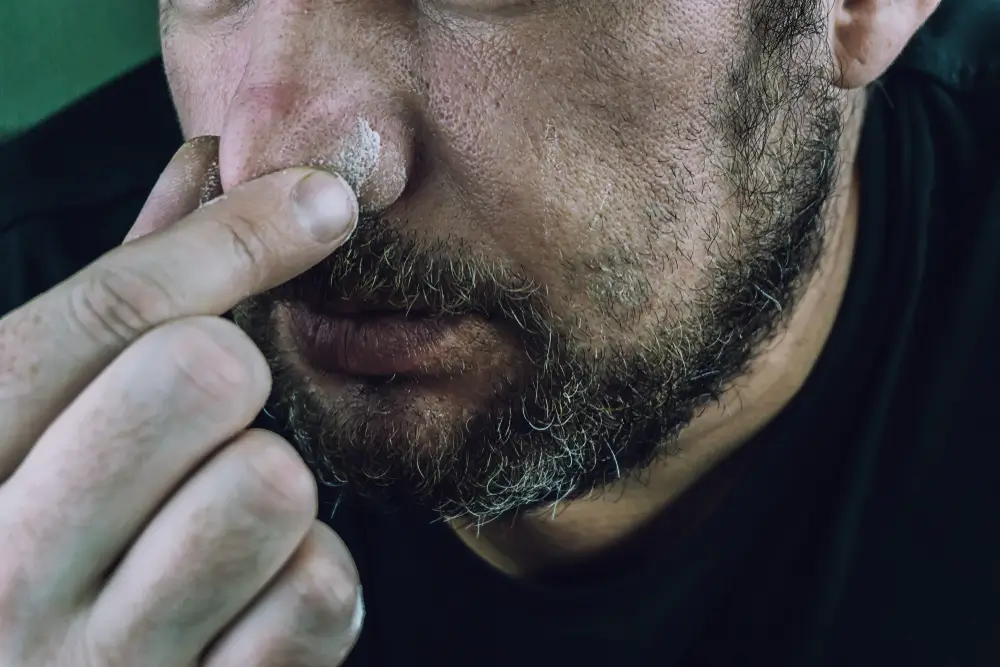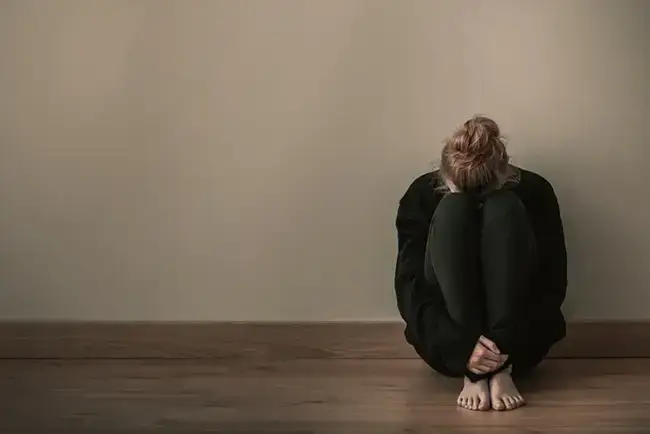It can be hard to tell if the person you’re dating is a cocaine addict, as the warning signs can be hard to recognize. Being in a relationship with an individual who may be addicted to drugs can be a difficult and confusing experience. Addiction is a progressive illness, and it can be tricky to spot it initially. People might start using cocaine recreationally, but it can eventually become a more intricate and serious issue. They may start to conceal their issue from their romantic partners, making it difficult to figure out if they are abusing cocaine. Despite this, there are certain clues that indicate that someone is a cocaine addict.
This article will discuss cocaine addiction, both the short and long-term effects of this addiction, and signs that your partner may be a cocaine addict.
Cocaine Addiction
Cocaine is a dangerous and highly addictive drug that can have devastating effects on physical and psychological health. It can cause severe damage to the central nervous system, leading to a rapid onset of addiction. The euphoria produced by cocaine is short-lived, and users quickly become dependent on it for a variety of reasons. Unfortunately, cocaine addiction has become increasingly common in today’s society; as many as 1,800 Americans try it for the first time each day. Despite its dangerous consequences and the high risk of addiction, thousands of individuals are still drawn to cocaine every year.
Due to its illegality, any kind of intake of Cocaine is deemed to be abuse. Classified as a central nervous system stimulant, Cocaine manipulates the brain by increasing the levels of dopamine – a neurotransmitter related to pleasure and gratification. With extended use, Cocaine has a detrimental effect on all parts of the body and can lead to long-term adverse outcomes, such as alterations to the genetic material in brain cells, neurons and proteins, among other permanent repercussions.

Cocaine is a substance that is highly habit-forming, but it can be difficult to notice an addiction to it. Psychological addiction is usually the most difficult to conquer, although there are tangible physical signs of cocaine addiction as well. People who use Cocaine often will become dependent on it, meaning they require it to be able to feel regular. Once dependency has been developed, tolerance to its effects will build up and signs of withdrawal will occur when the person stops consuming it. As soon as a person becomes addicted to cocaine, it can be extremely hard to stop because Cocaine increases the level of dopamine in the brain, eventually reconfiguring the brain’s reward system.
Short-Term Effects of Cocaine Addiction
Cocaine evokes a fleeting yet powerful high that is soon followed by a feeling of intense depression, being on edge, and a strong urge to take more of the substance. Those who use it frequently have difficulty sleeping and eating. Heart rate, muscle contractions, and convulsions can all be heightened due to the drug.
People who use cocaine may become paranoid, belligerent, and anxious, even when not under its influence. Regardless of the amount or frequency of use, cocaine carries the risk of a heart attack, stroke, seizure, or failure of the respiratory system, any of which can lead to sudden death. Other short-term effects include:
- Loss of appetite
- Increased heart rate
- Rapid breathing
- Dilated pupils
- Nausea
- Hyperstimulation
- Erratic behavior
- Irritability
- Intense euphoria
- Paranoia
- Anxiety
- Depression
- Panic
- Convulsions, seizures, and sudden death
Long-Term Effects of Cocaine Addiction
As people become increasingly tolerant of the drug, they must consume greater amounts to achieve the same effect. Prolonged use results in a lack of sleep and a decrease in appetite. One can become delusional and start to see and hear things that are not there. Cocaine disrupts the brain’s chemical processes, forcing the person to take more of the drug just to feel “normal.”
Those who become dependent on cocaine (as is the case with most other drugs) begin to lose interest in other aspects of life. Withdrawal from the drug gives rise to depression so profound that an addict will do anything to obtain the drug, even commit murder. If the addict is unable to get cocaine, the depression may be so extreme that it leads to suicide. Other long-term effects include:
- Damage to heart and brain blood vessels
- High blood pressure
- Liver, lung, and kidney damage
- Destruction of nasal tissues
- Respiratory failure
- Infection if injected
- Malnutrition
- Weight loss
- Tooth decay
- Disorientation
- Mood disturbances
- Participating in risky behavior
- Delirium
- Severe depression
- Tolerance and addiction
Signs That You Are Dating a Cocaine Addict
Unfortunately, it can be very difficult to detect if a partner is struggling with a cocaine addiction unless they are open and honest about it. Without such honesty, it can be hard to recognize any changes in behavior that may indicate an issue with substance use. It is important to remember that addiction is a complex illness, and understanding it takes patience, communication, and support. For those who fear their partner may be a cocaine addict, the following are signs to pay attention to:
Physical Signs
The physical indications of drug misuse are commonly the most conspicuous. Since substance misuse issues regularly have a more noteworthy effect on conduct, behavior, and outer appearance, friends and family members are usually able to spot warning signs. Examples of physical symptoms of drug abuse include:
- Raspy voice
- Shaky hands
- Dramatic weight loss
- Dilated pupils
- Insomnia
- Flushed skin
- Track marks (if injected)
- Frequent headaches
- Frequent nosebleeds
Behavioral Signs
When an individual is indulging in illicit substances – especially cocaine – regularly, their cognitive abilities tend to suffer. This is often one of the first indications that a significant other may observe when questioning if there is an issue related to the abuse of drugs. Among the behavioral hints of addiction are:
- Motor skill impairment
- Violent behavior
- Lying
- Secrecy
- Unexplained accidents or injuries
- Stealing or borrowing money
- Neglecting loved ones and responsibilities
- Using alone
- Engaging in risky behavior
- Unexplained absences from work or home
- Depression
- Anxiety
- Severe mood swings

What To Do if You Are Dating a Cocaine Addict
In the event that you discover that your romantic partner is addicted to cocaine, you face a tough choice. If you choose to remain involved with them, either as a couple or in some other capacity, it is important to recognize how to provide them with the best help. Here are some guidelines that can help make the relationship successful.
Recognize Manipulative Behavior
Being in a relationship with someone who has an addiction can be extremely damaging. Your partner may express their intense emotions – such as anger, guilt and shame – by manipulating you. This could be done in various ways, such as by making you feel guilty, lying and blaming you for things. This can be extremely taxing on the partner of someone who is dependent on substances. It is important to bear in mind that your partner is not intentionally trying to manipulate you – it is a common consequence of addiction.
Encourage Them to Seek Help
Look into local treatment facilities, therapists who know about addiction, and support groups in your area. Offer to join them in these groups or provide them with helpful resources. Keep in mind that it will eventually be up to the person with the addiction to take control of the situation.
Do Not Enable
Enabling typically appears as if it’s helping rather than fueling their dependency. It can mean providing your partner with money that will most likely be used for drugs or driving them to acquire drugs. Allowing can also signify tolerating your addicted partner to breach your rules. This could appear as permitting them to consume drugs in front of you when you don’t agree with it or phoning in sick to work on their behalf. Identify what your boundaries are and stick to them, even if it means making hard decisions.
Do Not Blame Yourself
Your partner should be solely accountable for their conduct, and you don’t have power over their activities. Keep a sound frame of mind by reminding yourself that you are not responsible for your partner. Even though you can offer them your backing, you have to understand that they are in charge of themselves. Look for psychological help or therapy if you feel under pressure and exhausted trying to manage or “mend” your partner. Recall that it is not your fault if they experience a setback or have difficulty with their healing.
Cocaine Addiction Treatment in Los Angeles
We at Launch Centers recognize how challenging cocaine addiction can be, and we are passionate about providing the necessary assistance and resources to assist people in overcoming their struggles. If you or a loved one is dealing with a cocaine addiction or a mental health issue, we strongly urge you to contact us. Our team of qualified professionals is here to assist you throughout the recovery journey and we are devoted to helping you reach your objectives and sustain long-term recovery.
Whether this is the first time you are looking for support or you are having difficulty with a relapse, Launch Centers is here to provide you with the attention and understanding you require to confront your struggles and start a new, healthy life. Call us today.





